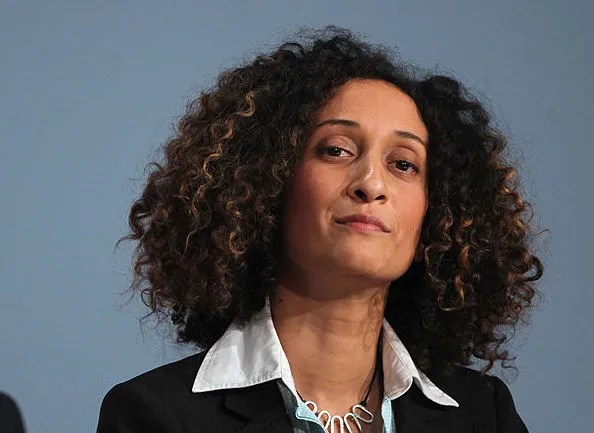One of the main accusations levelled at the trans movement is that the tidal wave of youngsters claiming to be gender dysphoric in recent years is a form of social contagion, especially among rich, progressive households.
Katharine Birbalsingh, the former government social mobility tsar and head of Michaela Community School in northwest London, seems to agree that it can be understood as a social phenomenon. And she has her own particular theory. ‘Our society is such that victimhood is admired’, she told the Standard yesterday, and one reason a disproportionate number of those drawn to the trans movement are ‘white and privileged’ is that it offers them ‘a victimhood narrative to embrace’, one denied them on account of their wealth and skin colour.
There can be little doubt that victimhood has an inherent appeal today
There can be little doubt that victimhood has an inherent appeal today. A victim culture has long been observed in western society, one which respects and admires those who deem themselves downtrodden, oppressed and wronged, and a society which accords higher moral worth and value to the opinions of the victim. Both today’s trans and anti-racism movement are imbued with a victimhood narrative. The entire nexus of wokery is underpinned by grievance. And that was its chief attraction from the outset.
A decade ago, woke was visited upon a society that had already sanctified victimhood. This shift was made clear in the 1990s, a decade which began with a new therapeutic sensibility and ended with the post-Diana consensus that we should unload all our sorrows in public. The 1990s also saw that foretaste of wokery, ‘Political Correctness’, with its fixation with righting historical wrongs imposed on women and people of colour, an obsession already starting to grate with conservatives.
In that decade we first witnessed how victimhood, with its necessary association with the underprivileged and oppressed, came to be appropriated. Sinn Fein’s reinvention of itself as the party of peace and reconciliation in Northern Ireland was partly realised by consciously aligning itself with the ANC and its universally-approved crusade. In entertainment Sacha Baron Cohen’s comic creation ‘Ali G’ reflected a real-life demographic: the white or Asian child who wishes to be black because that identity confers the status of a rebel at odds with an oppressive system.
A genuinely unjust system in the postwar era gave birth to the civil rights movement in the United States and women’s liberation worldwide. Both sought to redress injustice and remove impediments for certain sections of society. But the sense of righteousness that fuelled those revolutions in the Sixties soon descended into self-righteousness and self-pity in the narcissistic and disappointed decade that followed. Many foresaw the consequences of a shift from breaking down the barriers of discrimination to morbidly obsessing about them. As Michael Wharton, under the well-known Fleet Street byline ‘Peter Simple’, wrote in the Daily Telegraph in 1972, about the mania for ‘racial discrimination’ and ‘sexual discrimination’: ‘What would our society be like if this process reached its ultimate though fortunately unattainable conclusion, in which every single person saw himself as a victim of discrimination by some other person?’
The postwar settlement’s collectivist spirit also sowed the seeds for our victim culture. It nurtured the widespread belief that the lowly plight of the subject or citizen was not automatically his or her fault, but rather that of ‘society’ or ‘the system’. The result was a passive mindset. Hyper-liberalism can be understood as the end of the long decline in the belief in individual agency, with a resultant descent into introspection, envy and resentment.
The evidence of victimhood’s saturation and ultimate triumph today can be observed in the man who purports to be the arch-enemy of woke: Donald Trump. This narcissist portrays himself as a victim, or the spokesman for victims, to such an extent that he now implausibly speaks of white South Africans as victims of ‘genocide’.
If Donald Trump can be seduced by victimhood, with all the social and political advantages it confers, then there’s no reason why teenagers shouldn’t also want to jump on the bandwagon.







Comments